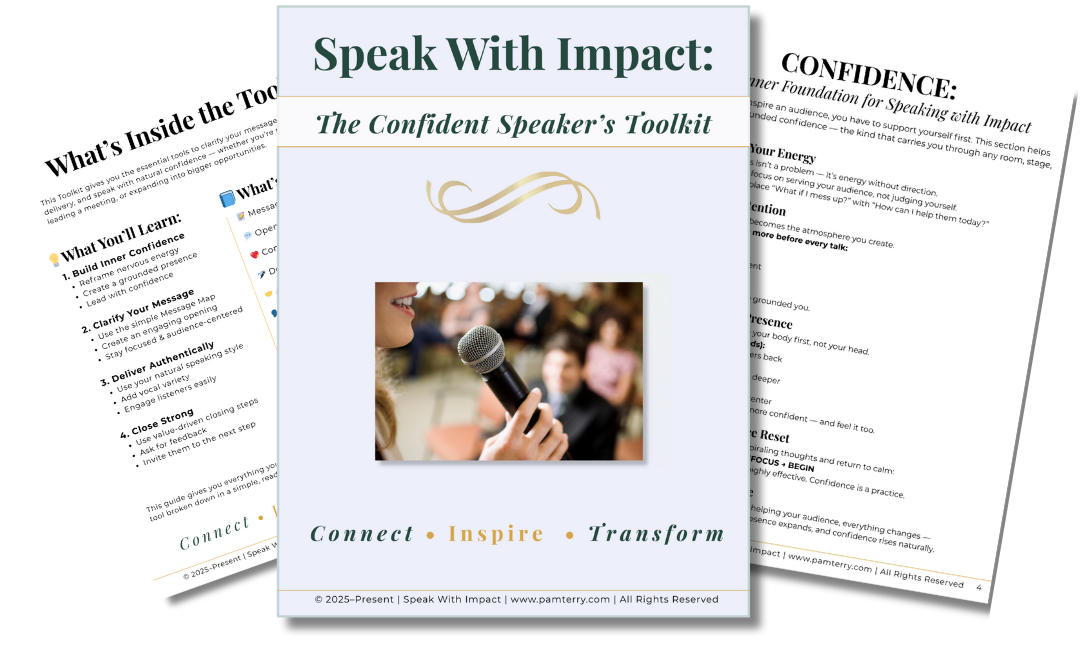Being an outstanding public speaker is just as important as making sure the right people can find you online. This is where SEO (Search Engine Optimization) comes into play. By leveraging SEO, you can increase your online visibility, attract more speaking opportunities, and build a strong personal brand. In this guide, you'll learndown essential SEO strategies that public speakers can use to get found online.
Understanding SEO: The Basics
What is SEO?
SEO, Search Engine Optimization, is the practice of optimizing your website and content to rank higher in search engine results. It involves a mix of on-page, off-page, and technical strategies that work together to improve your site's visibility on search engines like Google. I am no expert and depended on ChatGPT to help me write this blog post. Also, I understand a few of the SEO elements needed, but I still have so much to learn especially since I do everything myself.
Why SEO Matters
Your online presence is your calling card. A well-optimized website not only helps you stand out but also builds your credibility. When potential clients search for a speaker in your niche, effective SEO ensures that you appear at the top of their search results, leading to more inquiries and bookings.
Keyword Research: Finding the Right Words
Importance of Keyword Research
Keyword research is the cornerstone of any successful SEO strategy. It involves identifying the words and phrases that potential clients use when searching for speakers like you. By targeting the right keywords, you can attract an audience that is actively looking for your expertise.
Tools for Keyword Research
To find the best keywords for your niche, tools like Google Keyword Planner, Ubersuggest, and SEMrush are invaluable. These tools provide insights into search volume, competition, and related keywords that can help you refine your strategy. I have not used them lately and because there is so much to learn, I would rather watch a tutorial or hire someone to teach me, given my priorities and time available. For now, I use keywords for every blog post and use ChatGPT to help me come up with the keywords.
Identifying High-Impact Keywords
Focus on a mix of short-tail and long-tail keywords. Short-tail keywords are broader (e.g., "motivational speaker"), while long-tail keywords are more specific (e.g., "motivational speaker for corporate events in Texas"). The latter often has less competition and attracts a more targeted audience. Good to know.
On-Page SEO: Optimizing Your Website
Optimizing Titles and Headers
Your page titles and headers (H1, H2, H3) should include your primary keywords. These elements signal to search engines what your page is about, helping them index your content correctly.
Meta Descriptions
Meta descriptions are the snippets of text that appear under your page title in search results. A compelling, keyword-rich meta description not only helps with SEO but also encourages users to click through to your site. For example, the "snippet" for this blog post is: "In SEO for Public Speakers: How to Get Found Online," you'll learn strategies to boost your online visibility and get found by potential clients." I do know that snippets usually should be about 20 words.
Content Optimization
Quality content is king in SEO. Ensure your content is informative, engaging, and rich with relevant keywords. However, avoid keyword stuffing—search engines favor content that is written naturally and provides value to readers.
Internal and External Links
Linking to other relevant pages on your site (internal links) and to authoritative external sites (external links) helps search engines understand your content's context and boosts your credibility.
Image SEO
Images on your website should include alt text that describes the image and incorporates relevant keywords. This helps with SEO and ensures your content is accessible to all users, including those using screen readers. The alt text that I sue for my "header" picture is the title of the blog post.
Off-Page SEO: Building Your Authority
Backlinks: Why They Matter
Backlinks, or links from other websites to yours, are a major factor in SEO. They signal to search engines that your content is valuable and trustworthy. Aim to earn backlinks from reputable sites in your industry. This is on my to do list.
Guest Blogging
Writing guest posts for other websites is a great way to build backlinks and increase your visibility. Choose platforms that align with your niche and audience to maximize the impact. Other platforms include LinkedIn and Medium.
Social Media Integration
Social media doesn’t just help you engage with your audience; it also supports your SEO efforts. Sharing your content on social platforms can drive traffic to your site, leading to more backlinks and higher search engine rankings.
Technical SEO: Ensuring Your Site is SEO-Friendly
Mobile Optimization
With more people browsing on mobile devices than ever before, having a mobile-friendly website is crucial. Google favors mobile-optimized sites, so ensure your site looks great and functions well on all screen sizes.
Site Speed
A slow-loading website frustrates users and negatively impacts SEO. Use tools like Google PageSpeed Insights to test and improve your site’s speed. I just ran a test on my desktop site and I got an overall score of 95 out of 100, so pretty great. For mobile, my score was 59 for performance so not so great. But other scores were 87 for accessibility, 100 for best practices, and 85 for SEO. I'll have to look into that.
Secure Websites (HTTPS)
Search engines prioritize secure sites. Make sure your website uses HTTPS rather than HTTP, which not only boosts your SEO but also assures visitors that their data is safe. I have an HTTPS site which means that I have an SSL certificate. This is a certificate that you can get from your web hosting company.
Sitemaps and Indexing
A sitemap helps search engines find and index your content. Submit your sitemap to Google Search Console to ensure your pages are being properly indexed. Hmm, I don't believe I have done this so it's going on my to do list!
Local SEO: Getting Found in Your Area
Claiming and Optimizing Google My Business
For public speakers, especially those looking to secure local gigs, a Google My Business profile is essential. Claim your profile, keep it updated, and optimize it with relevant keywords, images, and your speaking topics. Need to do this too.
Local Keywords
Incorporate location-specific keywords into your website content. For example, if you’re a keynote speaker in Houston, use phrases like “Houston keynote speaker” to attract local searches. Good point!
Getting Reviews
Positive reviews not only enhance your credibility but also improve your local SEO. Encourage satisfied clients to leave reviews on Google and other platforms. I have reviews on Facebook and LinkedIn, but not Google. Something to think about.
Monitoring and Adjusting Your SEO Strategy
Tracking Your SEO Performance
SEO is not a one-time effort; it requires continuous monitoring and adjustment. Tools like Google Analytics and Search Console allow you to track your site’s performance and identify areas for improvement. I know what Google Analytics is but I don't understand how to use it. I have hired people to update my GA however because I know it is important. I'm sure there is more that I need to do.
Making Data-Driven Decisions
Analyze your SEO data to see which strategies are working and which need tweaking. Focus on high-performing content and adjust underperforming pages to boost your overall SEO efforts. I would need to hire someone to help me with this.
Continuous Improvement
SEO trends evolve, and it’s important to stay updated. Regularly refine your strategy based on the latest SEO practices and search engine algorithms to maintain your online visibility. Ditto - need to hire someone to help with this. But, I do believe it's important.
Wrap Up
SEO is a powerful tool that can significantly boost your visibility especially as a public speaker. By understanding and implementing the strategies outlined in this guide, you can ensure that your website ranks higher in search results, attracts more traffic, and leads to more speaking engagements. Start optimizing today and watch your online presence grow. You can do something to move forward, even if it's to ask questions. If you have any, let me know below. I'm good at finding answers if I don't know them myself!
Additional Resources
These related blog posts can help drive traffic to your website:



